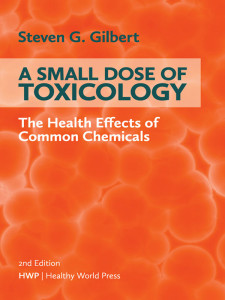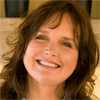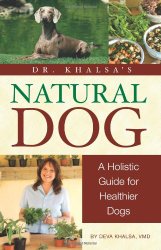Toxic Free Talk Radio Archives
Living With Electromagnetic Hypersensitivity (EHS)
 Today my guest is biochemist Richard H. Conrad PhD. From his home in Hawaii, Richard does consulting by phone for individuals, architects, builders, and corporations on the subject of reducing chemical and EMF exposures in homes and workplaces. He aim is to both keep healthy people healthy and help people with multiple chemical sensitivities and electromagnetic hypersensitivities. Today we’ll be talking about the nature of electromagnetic hypersensitivities, how to prevent them, and how to live with them if you have them. Richard was raised in New Jersey, and won a couple of national science awards while in high school.After graduating from Brandeis University, he obtained a Ph.D. in Biochemistry from Johns Hopkins University in 1968. Richard spent some time in the Biochemistry Department at Cornell University and was an Assistant Professor at the University of Washington in Seattle. One of his many interests led him to spend a number of years experimenting with different ways of disinfecting his swimming pool and hot tub. During this time he developed and patented ozone generation equipment for purifying water (where he met my father, who was also working in this field). In addition to his consulting, Richard’s website has many papers and links related to MCS and EHS. www.conradbiologic.com
Today my guest is biochemist Richard H. Conrad PhD. From his home in Hawaii, Richard does consulting by phone for individuals, architects, builders, and corporations on the subject of reducing chemical and EMF exposures in homes and workplaces. He aim is to both keep healthy people healthy and help people with multiple chemical sensitivities and electromagnetic hypersensitivities. Today we’ll be talking about the nature of electromagnetic hypersensitivities, how to prevent them, and how to live with them if you have them. Richard was raised in New Jersey, and won a couple of national science awards while in high school.After graduating from Brandeis University, he obtained a Ph.D. in Biochemistry from Johns Hopkins University in 1968. Richard spent some time in the Biochemistry Department at Cornell University and was an Assistant Professor at the University of Washington in Seattle. One of his many interests led him to spend a number of years experimenting with different ways of disinfecting his swimming pool and hot tub. During this time he developed and patented ozone generation equipment for purifying water (where he met my father, who was also working in this field). In addition to his consulting, Richard’s website has many papers and links related to MCS and EHS. www.conradbiologic.com
Audio Player
How To Dress Without Toxics and Still Have Style
 Today my guest is Greta Eagan, eco ambassador, writer, stylist, conscious living expert, and author of Wear No Evil: How to Change the World with Your Wardrobe. We’re going to be talking about toxics in textiles and how to have “style + sustainability without sacrifice.”
Today my guest is Greta Eagan, eco ambassador, writer, stylist, conscious living expert, and author of Wear No Evil: How to Change the World with Your Wardrobe. We’re going to be talking about toxics in textiles and how to have “style + sustainability without sacrifice.” Shortly after graduating from the London College of Fashion, Greta founded fashionmegreen.com, a sustainable fashion awareness project- now a popular blog. Both the author and her blog have become leading sources for information on sustainable style, green beauty, and eco-chic decor. Greta has contributed to publications in print and online, including Glamour, Lucky and the Huffington Post, and has collaborated with brands such as Kate Spade, Eileen Fisher, The Outnet, Refinery29, and many more. She has made TV appearances for eco-fashion and beauty segments, hosted Aspen Fashion Week for Outdoor Television, and been both a panel and keynote speaker at conferences around the world including SXSW Eco. www.fashionmegreen.com | www.gretaeagan.com
Shortly after graduating from the London College of Fashion, Greta founded fashionmegreen.com, a sustainable fashion awareness project- now a popular blog. Both the author and her blog have become leading sources for information on sustainable style, green beauty, and eco-chic decor. Greta has contributed to publications in print and online, including Glamour, Lucky and the Huffington Post, and has collaborated with brands such as Kate Spade, Eileen Fisher, The Outnet, Refinery29, and many more. She has made TV appearances for eco-fashion and beauty segments, hosted Aspen Fashion Week for Outdoor Television, and been both a panel and keynote speaker at conferences around the world including SXSW Eco. www.fashionmegreen.com | www.gretaeagan.com
Audio Player
Toxics and Trees
 My guest today is Shannon Smith, Communications and User Voice at Ecosia.org, a search engine that helps the environment by planting trees as you search the web. We’ll be talking about how trees create clean air and our our the air pollution we create harms trees. Ecosia is a search engine that plants trees when users search the web. The social business has already raised over $1.5 million for rainforest protection since its founding in December 2009. By donating 80% of its ad income to a tree planting program in Brazil’s Atlantic Forest, Ecosia aims to have the highest positive impact on the environment per dollar. The Berlin-based start-up neutralises all CO2 emissions related to its search as well as publishing donation receipts online – its promise to the two million monthly Ecosia users, who are proving that small changes can have a big impact. Former journalist and writer Shannon Smith has liaised between users, partners and team members since 2010 to build Ecosia into a movement for sustainable change. She is a Texas native. www.ecosia.org
My guest today is Shannon Smith, Communications and User Voice at Ecosia.org, a search engine that helps the environment by planting trees as you search the web. We’ll be talking about how trees create clean air and our our the air pollution we create harms trees. Ecosia is a search engine that plants trees when users search the web. The social business has already raised over $1.5 million for rainforest protection since its founding in December 2009. By donating 80% of its ad income to a tree planting program in Brazil’s Atlantic Forest, Ecosia aims to have the highest positive impact on the environment per dollar. The Berlin-based start-up neutralises all CO2 emissions related to its search as well as publishing donation receipts online – its promise to the two million monthly Ecosia users, who are proving that small changes can have a big impact. Former journalist and writer Shannon Smith has liaised between users, partners and team members since 2010 to build Ecosia into a movement for sustainable change. She is a Texas native. www.ecosia.org
Audio Player
Helping Children Make Good Food Choices
 My guest today is Katherine Pryor, a good food advocate based in Seattle. While advocating for Farm to School funding in the state capitol one year, Katherine was impressed by the array of stories told by parents, teachers, and school administrators about how having farm to school programs and school gardens had changed kids’ eating practices. She wanted to write these stories from the kids’ perspectives, hoping to inspire schools and government agencies to support good food education. Her first children’s book, Sylvia’s Spinach, is being used to complement school garden curriculum and encourage young readers to try new foods. Her next book, Zora’s Zucchini, will be published in 2015. We’ll be talking about how you can help your kids make better food choices at home and when they are out in the world at school and with friends. Among other projects, Katherine has worked
My guest today is Katherine Pryor, a good food advocate based in Seattle. While advocating for Farm to School funding in the state capitol one year, Katherine was impressed by the array of stories told by parents, teachers, and school administrators about how having farm to school programs and school gardens had changed kids’ eating practices. She wanted to write these stories from the kids’ perspectives, hoping to inspire schools and government agencies to support good food education. Her first children’s book, Sylvia’s Spinach, is being used to complement school garden curriculum and encourage young readers to try new foods. Her next book, Zora’s Zucchini, will be published in 2015. We’ll be talking about how you can help your kids make better food choices at home and when they are out in the world at school and with friends. Among other projects, Katherine has worked  on a successful campaign to get Starbucks to commit to dBGH-free milk nationwide and worked with Health Care Without Harm’s Healthy Food in Health Care initiative, helping hospitals use their purchasing power to support local and sustainable food producers. In addition to writing, Katherine manages a statewide program to bring local and sustainable foods to Washington hospitals. www.katherinepryor.com
on a successful campaign to get Starbucks to commit to dBGH-free milk nationwide and worked with Health Care Without Harm’s Healthy Food in Health Care initiative, helping hospitals use their purchasing power to support local and sustainable food producers. In addition to writing, Katherine manages a statewide program to bring local and sustainable foods to Washington hospitals. www.katherinepryor.com
Audio Player
Growing Organic in the City—Yes It’s Possible!
 Today my guest is Dan Susman, director of Director Growing Cities. Growing Cities is the first documentary about urban farming across America.From rooftop farmers to backyard beekeepers, Americans are growing food like never before. Growing Cities tells the inspiring stories of these intrepid urban farmers, innovators, and everyday city-dwellers who are challenging the way this country grows and distributes its food. And that’s what we’re going to talk about today. Growing Cities been accepted by American Public Television to reach a guaranteed 80% of PBS markets, but the filmmakers are responsible to secure all funding for the broadcast, including all the editing and conforming the film to PBS standards. So they are reaching out through a Kickstarter program to raise $30,000 by July 9th.
Today my guest is Dan Susman, director of Director Growing Cities. Growing Cities is the first documentary about urban farming across America.From rooftop farmers to backyard beekeepers, Americans are growing food like never before. Growing Cities tells the inspiring stories of these intrepid urban farmers, innovators, and everyday city-dwellers who are challenging the way this country grows and distributes its food. And that’s what we’re going to talk about today. Growing Cities been accepted by American Public Television to reach a guaranteed 80% of PBS markets, but the filmmakers are responsible to secure all funding for the broadcast, including all the editing and conforming the film to PBS standards. So they are reaching out through a Kickstarter program to raise $30,000 by July 9th.
Dan has lived, breathed, and eaten urban agriculture over the past three years making Growing Cities. He has visited countless urban farms and food projects across the country and worked with many leaders in the sustainable agriculture movement. He is also the co-founder of Truck Farm Omaha, an edible education project which teaches local youth about sustainable farming and healthy foods. www.growingcitiesmovie.com
Audio Player
A Truly All-Natural Carpet
 My guest today is James Stinnett, founder of Earth Weave Carpet Mills. They are the premier North American manufacturer of all natural, non-toxic carpet, area rugs and padding—made using undyed, untreated wool on the face, along with hemp, cotton, jute and natural rubber for the backing materials. We’ll be talking about toxic chemicals in carpets as well as how Earth Weave makes their carpets and padding. James grew up in Dalton GA, the carpet capital of the world, then moved out west to Montana after receiving an Operations Management degree from Auburn University. There he started and ran a successful flooring company, Rocky Mountain Flooring. Inspired by his love of nature to make non-toxic carpet and rugs James returned to Dalton, GA with a passion for providing high quality, healthy, non-toxic products. His company, Earth Weave Carpet Mills, founded in 1996, is the first and only North American producer of truly healthy broadloom carpets. James oversees every aspect of the business ensuring the products he manufactures speak for themselves in quality and purity. After being in business for over 18 years Earth Weave has maintained a notable reputation for being North America’s premier manufacturer of non-toxic, natural carpeting products. www.earthweave.com
My guest today is James Stinnett, founder of Earth Weave Carpet Mills. They are the premier North American manufacturer of all natural, non-toxic carpet, area rugs and padding—made using undyed, untreated wool on the face, along with hemp, cotton, jute and natural rubber for the backing materials. We’ll be talking about toxic chemicals in carpets as well as how Earth Weave makes their carpets and padding. James grew up in Dalton GA, the carpet capital of the world, then moved out west to Montana after receiving an Operations Management degree from Auburn University. There he started and ran a successful flooring company, Rocky Mountain Flooring. Inspired by his love of nature to make non-toxic carpet and rugs James returned to Dalton, GA with a passion for providing high quality, healthy, non-toxic products. His company, Earth Weave Carpet Mills, founded in 1996, is the first and only North American producer of truly healthy broadloom carpets. James oversees every aspect of the business ensuring the products he manufactures speak for themselves in quality and purity. After being in business for over 18 years Earth Weave has maintained a notable reputation for being North America’s premier manufacturer of non-toxic, natural carpeting products. www.earthweave.com
Audio Player
Persistant Bioaccumulative Toxicants
 Toxicologist Steven G. Gilbert, PhD, DABT, a regular guest who is helping us understand the toxicity of common chemicals we may be frequently exposed to. Dr. Gilbert is Director and Founder of the Institute of Neurotoxicology and author of A Small Dose of Toxicology- The Health Effects of Common Chemicals.
Toxicologist Steven G. Gilbert, PhD, DABT, a regular guest who is helping us understand the toxicity of common chemicals we may be frequently exposed to. Dr. Gilbert is Director and Founder of the Institute of Neurotoxicology and author of A Small Dose of Toxicology- The Health Effects of Common Chemicals. He received his Ph.D. in Toxicology in 1986 from the University of Rochester, Rochester, NY, is a Diplomat of American Board of Toxicology, and an Affiliate Professor in the Department of Environmental and Occupational Health Sciences, University of Washington. His research has focused on neurobehavioral effects of low-level exposure to lead and mercury on the developing nervous system. Dr. Gilbert has an extensive website about toxicology called Toxipedia, which includes a suite of sites that put scientific information in the context of history, society, and culture. www.toxipedia.org
He received his Ph.D. in Toxicology in 1986 from the University of Rochester, Rochester, NY, is a Diplomat of American Board of Toxicology, and an Affiliate Professor in the Department of Environmental and Occupational Health Sciences, University of Washington. His research has focused on neurobehavioral effects of low-level exposure to lead and mercury on the developing nervous system. Dr. Gilbert has an extensive website about toxicology called Toxipedia, which includes a suite of sites that put scientific information in the context of history, society, and culture. www.toxipedia.org
Audio Player
Caring for Your Dog Naturally
 My guest today is holistic veterinarian Dr. Deva Khalsa, author of the bestselling book Dr. Khalsa’s Natural Dog. We’ll be talking about the things that dog owners often do out of love for their pet, which might not be so good for them. Dr. Deva earned her degree from the University of Pennsylvania’s School of Veterinary Medicine in 1981. Since beginning her holistically oriented veterinary practice over 25 years ago, Dr. Deva has been incorporating homeopathy, acupuncture, Chinese Herbs, nutritional advice, and allergy-elimination techniques. Today her work is a blend of sophisticated holistic techniques and traditional veterinary medicine designed to best enhance the natural strengths and attributes of her patient. Dr Deva has a reputation as a life-saver for ailing animals who would not have survived had they not been brought to her for treatment.
My guest today is holistic veterinarian Dr. Deva Khalsa, author of the bestselling book Dr. Khalsa’s Natural Dog. We’ll be talking about the things that dog owners often do out of love for their pet, which might not be so good for them. Dr. Deva earned her degree from the University of Pennsylvania’s School of Veterinary Medicine in 1981. Since beginning her holistically oriented veterinary practice over 25 years ago, Dr. Deva has been incorporating homeopathy, acupuncture, Chinese Herbs, nutritional advice, and allergy-elimination techniques. Today her work is a blend of sophisticated holistic techniques and traditional veterinary medicine designed to best enhance the natural strengths and attributes of her patient. Dr Deva has a reputation as a life-saver for ailing animals who would not have survived had they not been brought to her for treatment.  She is often featured as a veterinary expert on radio and television, from National Public Radio, to Martha Stewart’s Veterinary Satellite Radio show, to her many appearances on major television networks. Dr. Deva also developed her own line of nutritional supplements through Deserving Pets as a gift to the animals she loves so dearly. Dr. Deva firmly believes that by enabling our furry friends to maintain optimum health through daily nutrition and diet, we will be able to allow them to live their lives to the fullest, by staving off many of the most devastating illnesses and ailments. www.doctordeva.com| www.deservingpets.com
She is often featured as a veterinary expert on radio and television, from National Public Radio, to Martha Stewart’s Veterinary Satellite Radio show, to her many appearances on major television networks. Dr. Deva also developed her own line of nutritional supplements through Deserving Pets as a gift to the animals she loves so dearly. Dr. Deva firmly believes that by enabling our furry friends to maintain optimum health through daily nutrition and diet, we will be able to allow them to live their lives to the fullest, by staving off many of the most devastating illnesses and ailments. www.doctordeva.com| www.deservingpets.com
Audio Player
Where to Start Eliminating Household Toxics
 My guest today is Amy Ziff, Founder and Chief Capidealist™ (someone who believes that world change will come about through harnessing our collective purchasing power on the free market) of Veritey, a website that makes it exceedingly simple to find products and services that are healthy. Amy puts an amazing amount of work into evaluating the products she sells and rates each one for being nontoxic, sustainable, cruelty-free and socially responsible. We’ll be talking about where to start once you decided to eliminate toxics from your life as well as her own process of choosing toxic-free products. Amy is a trained journalist, proven entrepreneur, start-up veteran, and healthy living advocate. She never wanted to work at a women’s magazine writing about make-up. Amy always was looking for ways to make a difference, and to find better ways to live a healthy life. When she became a mom, everything came together. Amy was frustrated by how hard it was to make what should be simple decisions – healthy decisions – for herself and her family. For years as a hobby, Amy has been seeking out the truth about products and their real ingredients. (What companies put in their products can be shocking, including known carcinogens and other toxic chemicals that can cause an array of conditions from asthma to infertility, and which are often not disclosed.) Amy believes you shouldn’t need a PhD to decipher what products are safe to use and which to avoid. Yet the reality is that getting to the truth of what’s in a product can take hours of research and a lot of legwork. Most busy moms and parents just don’t have that kind of time. Veritey makes it simple for people who are time pressed to make healthier decisions. Veritey is about where truth meets healthy living. www.veritey.com
My guest today is Amy Ziff, Founder and Chief Capidealist™ (someone who believes that world change will come about through harnessing our collective purchasing power on the free market) of Veritey, a website that makes it exceedingly simple to find products and services that are healthy. Amy puts an amazing amount of work into evaluating the products she sells and rates each one for being nontoxic, sustainable, cruelty-free and socially responsible. We’ll be talking about where to start once you decided to eliminate toxics from your life as well as her own process of choosing toxic-free products. Amy is a trained journalist, proven entrepreneur, start-up veteran, and healthy living advocate. She never wanted to work at a women’s magazine writing about make-up. Amy always was looking for ways to make a difference, and to find better ways to live a healthy life. When she became a mom, everything came together. Amy was frustrated by how hard it was to make what should be simple decisions – healthy decisions – for herself and her family. For years as a hobby, Amy has been seeking out the truth about products and their real ingredients. (What companies put in their products can be shocking, including known carcinogens and other toxic chemicals that can cause an array of conditions from asthma to infertility, and which are often not disclosed.) Amy believes you shouldn’t need a PhD to decipher what products are safe to use and which to avoid. Yet the reality is that getting to the truth of what’s in a product can take hours of research and a lot of legwork. Most busy moms and parents just don’t have that kind of time. Veritey makes it simple for people who are time pressed to make healthier decisions. Veritey is about where truth meets healthy living. www.veritey.com
Audio Player
How Antibiotics and Antibacterials are Compromising our Health
 My guest today is Martin J. Blaser, MD, author of Missing Microbes: How the Overuse of Antibiotics Is Fueling Our Modern Plagues. We’ll be talking about how the massive increases in the developed world of “modern plagues”—such as obesity, type 1 diabetes, asthma, allergies, esophageal cancer, celiac disease, Crohn’s disease, ulcerative colitis, and autism—are related to loss of diversity of the complex—and crucially important—ecosystem of microorganisms within our bodies on which we all depend. As diversity diminishes, our immune systems are compromised, and we become much more susceptible to new infections. And this loss of micro-organism diversity is due to the use of wide use of antibiotics and products that contain antibacterials such as triclosan.
My guest today is Martin J. Blaser, MD, author of Missing Microbes: How the Overuse of Antibiotics Is Fueling Our Modern Plagues. We’ll be talking about how the massive increases in the developed world of “modern plagues”—such as obesity, type 1 diabetes, asthma, allergies, esophageal cancer, celiac disease, Crohn’s disease, ulcerative colitis, and autism—are related to loss of diversity of the complex—and crucially important—ecosystem of microorganisms within our bodies on which we all depend. As diversity diminishes, our immune systems are compromised, and we become much more susceptible to new infections. And this loss of micro-organism diversity is due to the use of wide use of antibiotics and products that contain antibacterials such as triclosan.  Dr. Blaser has studied the role of bacteria in human disease for more than thirty years. He is the director of the Human Microbiome Program at New York University, the former president of the Infectious Diseases Society of America, and has held major advisory roles at the National Institutes of Health. He cofounded the Bellevue Literary Review, and his work has been written about in many newspapers and journals, including The New Yorker, Nature, The New York Times, The Washington Post, and The Wall Street Journal. He lives in New York City. www.martinblaser.com.
Dr. Blaser has studied the role of bacteria in human disease for more than thirty years. He is the director of the Human Microbiome Program at New York University, the former president of the Infectious Diseases Society of America, and has held major advisory roles at the National Institutes of Health. He cofounded the Bellevue Literary Review, and his work has been written about in many newspapers and journals, including The New Yorker, Nature, The New York Times, The Washington Post, and The Wall Street Journal. He lives in New York City. www.martinblaser.com.
Audio Player


